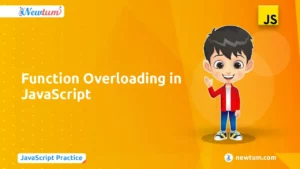When diving into the world of coding, “C Type Conversion: Implicit vs Explicit type Casting” becomes an essential topic to explore. These conversions play a pivotal role in ensuring your code runs efficiently and correctly. Whether you’re just starting or keen to polish your skills, understanding these concepts can bring clarity and precision to your programming. Curious to know how these conversions make a difference and why they matter? Read on, and see how mastering them can transform your coding journey.
2. What is Type Conversion in C?
Type conversion in C refers to the process of converting one data type into another. This is essential when variables of different types are used in expressions or assignments, ensuring proper and consistent data handling. In simpler terms, it changes the data type of a variable so it can fit into another data type’s format — for example, converting an int to a float.
There are two types of type conversion in C:
- Implicit Type Conversion (also known as type promotion): Done automatically by the compiler.
- Explicit Type Conversion (also called type casting): Done manually by the programmer.
Difference Between Type Conversion and Type Casting
| Aspect | Type Conversion | Type Casting |
|---|---|---|
| Who performs it? | Compiler | Programmer |
| Other Name | Implicit conversion | Explicit conversion |
| Syntax | No special syntax needed | Uses (data_type) syntax |
| When it occurs | Automatically during expression evaluation | Manually when programmer writes the cast |
| Risk of data loss | Low (handled safely by compiler) | Possible if casting to a smaller data type |
| Example | int x = 5; float y = x; | int x = (int) 5.75; |
Example for each:
// Implicit Conversion
int x = 10;
float y = x; // int automatically converted to float
// Explicit Conversion
float a = 5.75;
int b = (int) a; // float explicitly converted to intUnderstanding both concepts helps prevent bugs related to data loss, rounding errors, or unexpected results in calculations.
3. Implicit Type Conversion (Type Promotion)
Implicit Type Conversion, also known as type promotion, is the automatic conversion of one data type into another by the C compiler during expression evaluation. This usually happens when:
- Operands of different data types are used in the same expression.
- A value is assigned to a variable of a different (usually larger) data type.
The main goal is to preserve data accuracy and ensure compatibility during operations.
Rules of Implicit Conversion
C follows certain rules when performing implicit type conversion:
- Smaller data types are promoted to larger data types to prevent data loss.
Example:char→int→float→double - If operands are of different types, they are converted to the type of the largest operand.
- Boolean values (
true/false) are treated asint(1or0). - No explicit casting syntax is needed — compiler handles everything.
Example Code with Explanation
#include <stdio.h>
int main() {
int a = 10;
float b = 5.5;
float result;
result = a + b;
printf("Result = %.2f\n", result);
return 0;
}
Explanation:
ais anint,bis afloat.- During the expression
a + b,ais implicitly converted tofloat. - The result of the addition is a
floatand stored in afloatvariable.
Output:
Result = 15.50Use Cases and Advantages
Use Cases:
- Mathematical operations involving multiple data types.
- Assigning integer values to float or double variables.
- Passing arguments to functions expecting a larger data type.
Advantages:
- Reduces the need for manual casting.
- Simplifies code and avoids errors from unnecessary type handling.
- Ensures consistent behavior across different data types.
4. Explicit Type Conversion (Type Casting)
Explicit Type Conversion, also known as type casting, is when a programmer manually converts one data type into another using casting syntax.
This is done to control how data is transformed, especially when:
- There’s a risk of data loss
- Precision needs to be adjusted
- Type mismatch occurs in expressions or function calls
Syntax:
(data_type) variable
For example:
int x = (int) 3.14; // x becomes 3When and Why to Use Explicit Casting
You should use explicit casting when:
- You want to truncate decimal values from float/double to int
- You need to force type matching in mixed-type operations
- Avoid warnings or errors in function calls with strict type expectations
- Optimize performance by narrowing data types (with care)
Why it’s useful:
- Gives full control over data conversion
- Useful in mathematical formulas or low-level memory operations
Example Code with Breakdown and Output
#include <stdio.h>
int main() {
float price = 99.99;
int finalPrice;
finalPrice = (int) price; // Explicit conversion
printf("Original price: %.2f\n", price);
printf("Final price (after type casting): %d\n", finalPrice);
return 0;
}
Breakdown:
priceis afloatwith value 99.99.(int) pricecasts it to anint, removing the decimal part.finalPricestores the truncated integer value.
Output:
Original price: 99.99
Final price (after type casting): 99
Precautions to Take
- Data Loss: Casting from a larger type to a smaller type can lead to loss of precision or unexpected results.
float f = 123456.789; int i = (int) f; // i = 123456, decimals lost - Range Overflow: Casting large values into types with smaller ranges (e.g.,
inttochar) can cause overflow.int x = 300; char c = (char) x; // c may not hold the correct value due to range limits - Casting Pointers: Dangerous if not done carefully. Avoid unless you know what you’re doing.
Practical Uses of C Type Conversion: Implicit vs Explicit Casting
- Financial Software Development: Many financial software systems employ C type conversion to ensure accurate calculations on large data sets. For instance, when calculating interest rates that involve both integers and floating-point numbers, implicit type conversion allows a seamless operation without programmer intervention, maintaining precision and efficiency.
- Image Processing Applications: Companies that specialize in image processing, like Adobe, use explicit type casting to handle pixel color transformations. When processing an image, a pixel’s colour value might need to be cast from an integer to a floating-point value to apply sophisticated filters accurately, ensuring the final output is visually appealing.
- Game Development Engines: Game engines often require explicit type casting. In demanding scenarios, such as collision detection in games, developers may have to cast integer data to floating-point format to handle intricate physics simulations, ensuring smooth and realistic motion and interactions, crucial for a high-quality gaming experience.
- Embedded Systems in Automotive Industry: Automotive electronic control units (ECUs) rely on implicit conversion to integrate various data formats from sensors to make real-time decisions. For instance, data from different vehicular sensors might be automatically cast to a uniform float type for aggregated analysis, enhancing performance and safety features.
Our AI-powered ‘c’ compiler enables users to instantly write, run, and test their code effortlessly. Experience seamless coding with our advanced features. Check out the c online compiler for real-time assistance, ensuring your programming journey is smooth and efficient, catering perfectly to both beginners and experts.
Type Casting Quiz
- What is implicit type conversion?
A. A conversion done manually by the programmer
B. A conversion performed automatically by the compiler
C. A conversion that only occurs in float data types - Which C type conversion is also known as coercion?
A. Explicit type conversion
B. Implicit type conversion
C. Function-based type conversion - Identify an example of explicit type conversion.
A. int a = 5.0 + 2;
B. float f = 5;
C. int a = (int) 5.7; - Why use explicit type conversion?
A. To prevent data loss
B. To make code errors more noticeable
C. To ensure safe automatic conversions - When does implicit type conversion occur?
A. During arithmetic operations with different data types
B. Only when converting from int to char
C. In functions using more than one float data type
Conclusion
Completing ‘C Type Conversion: Implicit vs Explicit type Casting’ enriches your coding toolkit with precision in handling different data types. It boosts your confidence to write robust programs. Why not dive deeper and explore more programming languages with Newtum for a wider mastery?
Edited and Compiled by
This article was compiled and edited by @rasikadeshpande, who has over 4 years of experience in writing. She’s passionate about helping beginners understand technical topics in a more interactive way.



